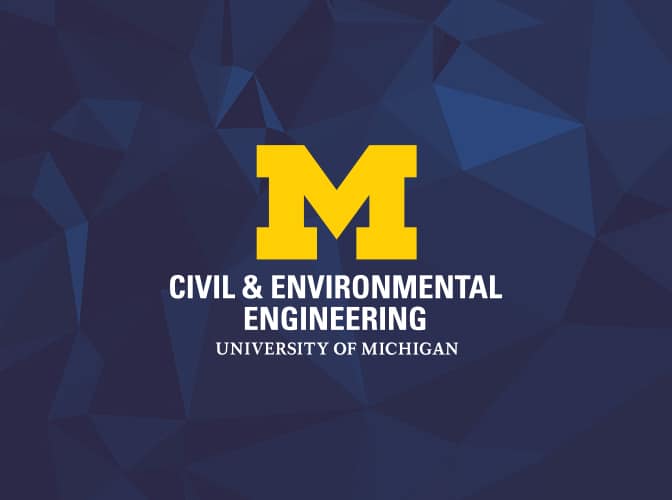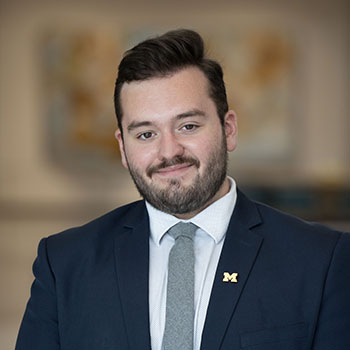
Krista Wigginton wins Paul L. Busch Award from the Water Research Foundation
CEE professor unites virology with engineering to develop a novel approach to managing risks associated with viruses in water.

CEE professor unites virology with engineering to develop a novel approach to managing risks associated with viruses in water.
On Tuesday October 2, 2018, during WEFTEC in New Orleans, LA, the Water Research Foundation (WRF) awarded Krista Wigginton, Ph.D., with the 2018 Paul L. Busch Award. With the $100,000 prize, Dr. Wigginton proposes to develop methods that will ultimately help protect public health and facilitate the development of virus-based methods for treating water.
Krista Rule Wigginton is an Assistant Professor in the Department of Civil and Environmental Engineering at the University of Michigan. Wigginton’s work has been funded by the National Science Foundation, the USDA, and the Water Research Foundation and published in Environmental Science & Technology and Applied and Environmental Microbiology. She is the recipient of the U.S. NSF International Postdoctoral Fellowship and the NSF CAREER award. The Award Selection Committee members were impressed with Dr. Wigginton’s unique approach to unite virology with engineering to develop a novel approach to managing risks associated with viruses in water. A team of well-known researchers at the University of Michigan, Dr. Nancy Love, Dr. Lutgard Raskin, and Dr. Glen Daigger, said Wigginton, is “a talented engineer, researcher and educator, she brings unique scientific knowledge of chemistry, microbiology, virology and an unparalleled understanding of public health to engineering applications of rapidly expanding practical importance.”
Human viruses are linked to a number of important illnesses associated with contaminated water. New human viruses are constantly discovered and are increasingly associated with chronic illnesses like cancer (e.g., polyomavirus) and Celiac disease (e.g., reovirus). Despite their impact on public health, human viruses are only a small fraction of those found in wastewater and drinking water. The vast majority are viruses that infect bacteria, algae, plants, and other organisms. These other viruses likely play important roles in shaping microorganism functions in biological processes, in the microbial communities of distribution system biofilms, and the opportunistic bacteria populations that can flourish in household plumbing. Limited knowledge of viruses is driven by the difficulty in detecting them. Virus particles are extremely small, measuring only ~20-200 nm in diameter. This makes them difficult to capture from water samples and nearly impossible to visualize with common microscopy techniques. Furthermore, only select viruses can be grown in the lab and the molecular methods commonly used to detect viruses require well-equipped labs. Improvements in ability to study and monitor viruses would facilitate exciting advancements in water quality research and practice. Dr. Wigginton proposes to use the Paul L. Busch award to revolutionize virus detection strategies by translating recent state-of-the-art biotechnological breakthroughs into new methods for the water community using unit process surrogates, rapid environmental monitoring, and quantitative virus sequencing.
Since 2001, the Endowment for Innovation in Applied Water Quality Research has supported the Paul L. Busch Award, providing more than $1.6 million in funding to up-and-coming researchers who are making major breakthroughs in the water quality industry. From energy-producing wastewater to next-generation membrane treatment, the Endowment has been there to fund this important research, pushing ideas on the brink of discovery forward. More information is available at www.werf.org/PaulBusch.
Original article by the Water Research Foundation (http://www.waterrf.org).

Marketing Communications Specialist
Department of Civil and Environmental Engineering